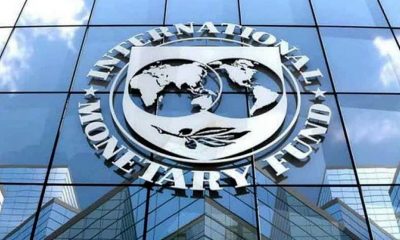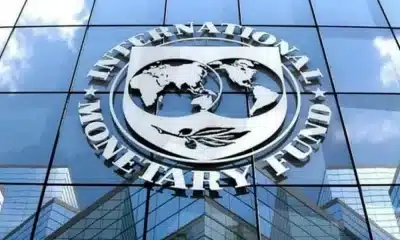Business
Nigerians, Others At Risk Of High Debt Distress – IMF Warns

The International Monentary Fund, IMF, has released a new report which states that Nigeria and 72 other countries are at risk of debt distress or already in debt distress.
The report which was titled “Restructuring debt of poorer nations requires more efficient coordination,” explained that countries with low income earners face less debt challenges compared to 25 years ago.
This change in debt challenges is due to the Heavily Indebted Poor Countries initiative,which slashed unmanageable debt burdens across sub-Saharan Africa and other regions.
The report reads in part: “About 60 percent of DSSI countries are at high risk of debt distress or already in debt distress—when a country has started or is about to start, a debt restructuring, or when a country is accumulating arrears.”
The low interest rates high investment needs, limited progress in raising additional domestic revenue, and stretched systems for managing public finances, the debt ratios of DSSI countries have led to a decline which was experience in the early 2000s.
“Now, the economic shocks from COVID-19 and the war in Ukraine are adding to the debt challenges faced by low-income countries, even as central banks start to raise interest rates,” it said.
The report stated that out of the 41 DSSI countries at high risk of debt distress Chad, Ethiopia, lia (under the HIPC framework), and Zambia have already requested debt treatment.
“Around 20 others exhibit significant breaches of applicable high-risk thresholds, half of which also have low reserves, rising gross financing needs, or a combination of the two in 2022.
“On the domestic side, difficult trade-offs will exist between the need to restructure sovereign debt owed to domestic banks, in some cases, and the impact of such restructurings on financial sector stability and the capacity of domestic banks to finance growth,” the report read further.
The report stated further that China is presently the largest bilateral creditor in more than half of DSSI countries.
This therefore translates to the fact that China will play a pivotal role in most DSSI countries’ debt restructurings that would involve official bilateral creditors.










